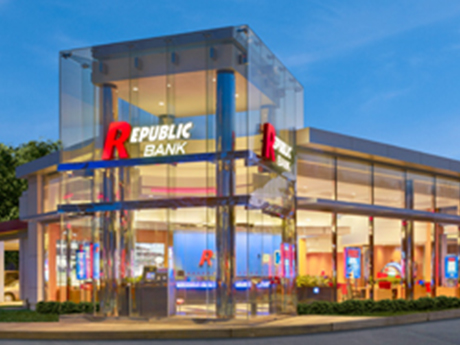PHILADELPHIA AND LANCASTER, PA. — Fulton Financial Corp. (NASDAQ: FULT), a regional lender based in Lancaster, has acquired Philadelphia-based Republic First Bank via an auction overseen by the Federal Deposit Insurance Corp. (FDIC).
On Friday, April 26, the Pennsylvania Department of Banking & Securities seized control of Republic First, closing the bank and appointing the FDIC as receivers. The transfer of ownership of “substantially all” of Republic First’s assets and deposits to Fulton Financial represents a move to protect customer funds, according to the FDIC.
Some of the driving forces behind the collapse of Republic First appear to mirror those of Silicon Valley Bank and Signature Bank, two regional lenders that went under in March 2023. Those factors include losses on bond holdings that had diminished in value amid rising interest rates, as well as exposure to high-risk loans that are collateralized by commercial and office properties, many of which have struggled to recoup occupancy and cash flows post-pandemic.
Relatively speaking, however, Republic First is a much smaller player than Silicon Valley and Signature. At the time of its collapse in late March 2023, Silicon Valley Bank had approximately $110 billion in assets, $56 billion in consumer and business deposits and $72 billion in outstanding loans. The balance sheet of New York-based Signature Bank, which collapsed shortly after Silicon Valley Bank, had a similar volume of assets under management at the time of its failure, as well as some $36 billion in loans backed by commercial assets.
As the time of its seizure and closure, Republic First had approximately $6 billion in assets, including an investment portfolio of nearly $3 billion. The bank had $5.3 billion in liabilities, including deposits of approximately $4 billion and other borrowings and liabilities of approximately $1.3 billion.
Following the completion of the transaction, Fulton Financial has “almost doubled” its presence in the Philadelphia market and now holds a total of roughly $8.6 billion in deposits. Fulton’s loan-to-deposit ratio has decreased from 99 percent to 92 percent following the acquisition, effectively improving its risk profile and liquidity, according to a press release issued by the bank.
As early as Saturday, April 27, some of Republic First’s 32 bank branches across Pennsylvania, New York and New Jersey had reopened as Fulton Financial locations. During the transition, customers with Republic First accounts retained uninterrupted access to their funds, including the use of debit cards issued by that institution and the writing of checks drawn on those accounts, according to the FDIC.
The Wall Street Journal reported over the weekend that Republic First faced liquidity concerns for several months, including aforementioned bond losses. The Journal also reported that state regulators had been prepared to seize Republic First as recently as last November.
Shortly thereafter, the bank reached an agreement with investors to bolster its balance sheet, but that transaction fell through, the paper reported. Reuters also reported on this last-gasp deal, noting that the investor group included a former TD Bank executive and that the group withdrew its offer for $35 million in funding earlier this year.
The stock price of Fulton Financial opened at $16.81 per share on Monday, April 29, the first full day of trading following the acquisition of Republic First. The stock price is up from $11.93 per share a year ago.
— Taylor Williams


